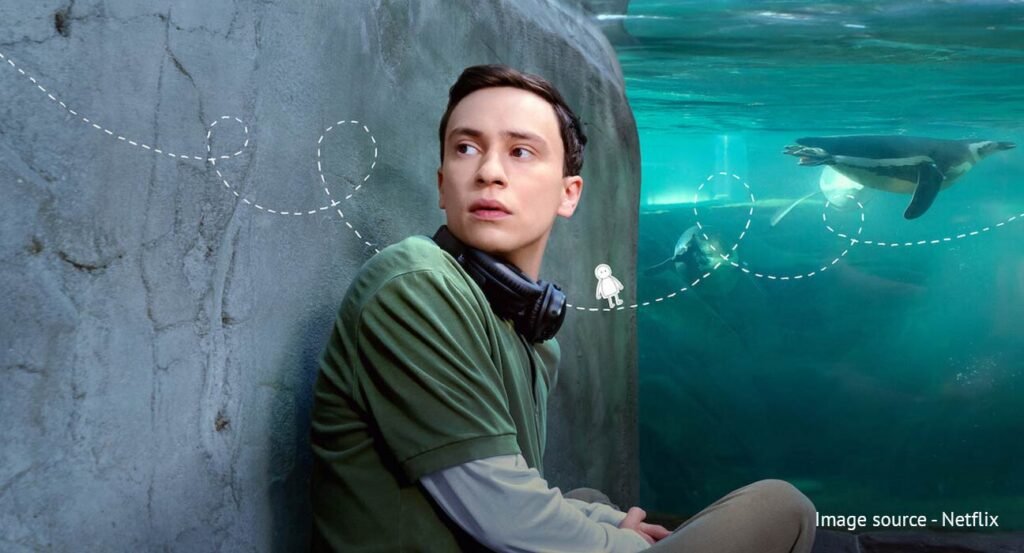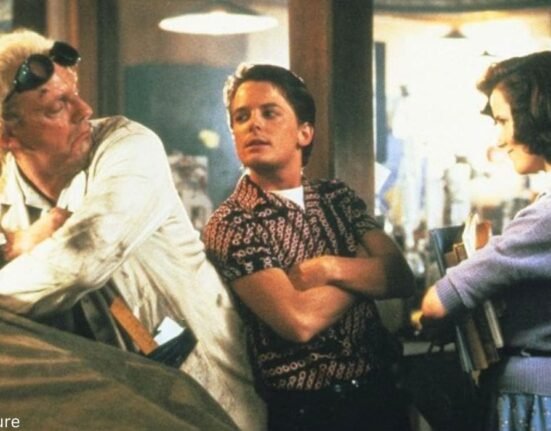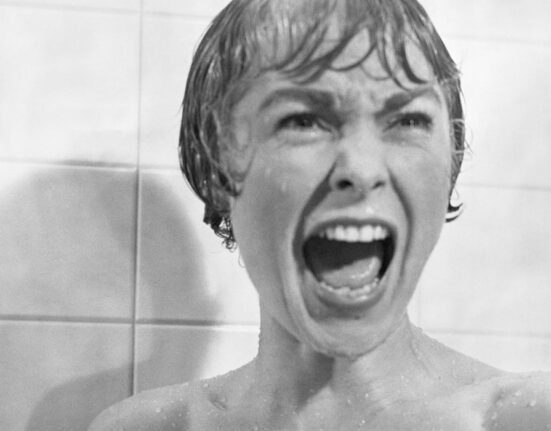In the digital age, our lives are dominated by screens. Popular media not only entertains us, but also largely shapes our perceptions, influences our opinions, and reflects the collective understanding of issues. Amongst the numerous subjects that have been explored in film and TV series are mental health disorders.
Must Read: The Antics of Indian Movies – A Psychological View
Often, popular media tends to overemphasise the negative aspects of mental illnesses. The portrayal merely acts to perpetuate false beliefs about the disorders, trivialise or mock the suffering of the patients, or add to the stigma that already exists around the topic. But sometimes, the portrayal is accurate and reflects the complexities and realities of these disorders. It delves into the nuances of the experience of the sufferers with great sensitivity. A few films and TV series which centred around mental health and illnesses are listed below:

1. Atypical:
Atypical is a 2017 Netflix drama-comedy centred around a 19-year-old teenage boy, Sam, who is on the autism spectrum. It follows his journey of living with the condition and discovering his identity, navigating love and work, and dealing with big life changes. His family also grapples with having a family member on the spectrum.
The series explores themes such as what it means to be normal and how a family can help a person with autism overcome challenges in their lives. It also delves into the experiences of other family members, such as Sam’s sibling, who is simultaneously protective of him but also struggling with receiving their parent’s attention (which is all diverted to Sam due to his condition).
Read: 10 Common myths around psychology you didn’t know
Although the series has received flak for its lack of nuance and for reducing Sam’s characters to stereotypes such as going non-verbal and monotone speech which indicates impairment in verbal development, having obsessions (Sam is shown to have an all-consuming interest in Antarctica and spending hours watching penguins at his local aquariums), and trouble with social cues (he cannot comprehend sarcasm and takes everything very literally).
Mental Health: Curious to know what probably goes in the mind of a child with an Autism Spectrum? This book can help you then!! –
The curious incident of the dog in the nighttime
The creators were criticised for not doing the homework on the condition, and only showcasing a caricature of someone with autism. However, the show was well-meaning and was praised at the same time for its honest portrayal which came at a time when there was a lot of social stigma around the condition. It helped viewers understand how they can create a society that is better suited to accommodate the struggles of persons with autism.

2. A Beautiful Mind:
This biographical film from 2001 was loosely based on the novel of the same name by Sylvia Nasar. It follows the story of mathematical genius John Nash, who received the Nobel Prize for his work on game theory. The film depicts Nash’s harrowing journey from the height of fame to the lowest of lows of his life and his struggles with schizophrenia.
Nash eventually goes on to triumph over his symptoms and receives the Nobel Prize. Parts of the film are shown from the perspective of Nash, which is later revealed to be his hallucinations and delusions. This film, although not without its flaws, is a wonderful story told in a manner that gives the viewers true insight into the mind of someone with schizophrenia.

3. Girl, Interrupted:
This 1999 psychological drama film stars Winona Ryder and Angelina Jolie. It is based on a memoir of the same name by Susanna Kaysen. Set in a psychiatric hospital, the film features numerous characters with mental illnesses. The protagonist is Susanna, a young girl diagnosed with Borderline Personality Disorder. The reviews of the movie found it a little problematic in its depiction of mental illness patients as one-dimensional representations of their disorders.
It also often showcases them as violent, which is a harmful stereotype. However, it was also praised for exploring some themes with detail such as isolation and forced institutionalisation. It also does a great job of portraying the unique challenges faced by women when they are diagnosed with mental illnesses. It also shows accurately that mental illness patients are more likely to be victims of abuse and not perpetrators.

4. Bojack Horseman:
Bojack Horseman (2014 – 2020) is an animated Netflix show about the titular character, who is a humanoid horse, the now washed-up star of the famous 90s sitcom ‘Horsin’ Around’. In an attempt to make a comeback and regain his lost fame, he hires a ghostwriter to write his autobiography.
Described as a comedy for adults, and a comedy it is (lined with absurdist humour and animal puns), it is much more than just that. It does not shy away from venturing into dark and depressing places, with themes such as addiction, childhood trauma, depression, narcissism, self-destructive behaviour, suicidal tendencies and more depicted realistically. It is a multi-season show on what mental illnesses are, and what they do.

5. Taare Zameen Par:
This 2007 film, directed and produced by Aamir Khan, brought Indian audiences to tears everywhere. It is centred around Ishaan, a young artistically gifted boy, who suffers from dyslexia.
It also explores how parenting styles and support (or the lack of it) from peers and teachers, are crucial in determining the life of a child with learning disabilities. It was lauded for its candid portrayal of learning disabilities and family dynamics.
Learn more about Dyslexia in this book: Dyslexia 101: Truths, Myths and What Really Works

6. Moon Knight:
Moon Knight is a Marvel miniseries from 2022. It stars Oscar Isaac, who plays Steven Grant, a mild-mannered gift shop employee. Grant is plagued with blackouts, visions, and memories of another life. He discovers that he has Dissociative Identity Disorder, and shares a body with a mercenary named Marc Spector.
He finds that he has been granted the powers of the Egyptian Moon God, which prove to be both a blessing and a curse. It is a fun and gripping take on mental illness; the series chronicles his adventures while navigating his complex identities while investigating the mysteries of the Egyptian Gods.

7. Perks of Being a Wallflower:
This 2012 coming-of-age tale is an adaptation of the novel of the same name by Stephen Chbosky. A 15-year-old introvert, Charlie, who had suffered from clinical depression since childhood, is discharged from a mental health care facility. He is nervous about his high school but eventually makes connections with charismatic seniors while coping with his friend’s suicide.
Unbeknownst to him, he also suffers from Post Traumatic Stress Disorder due to childhood abuse, which resurfaces when he is close to a friend. This sincere depiction of childhood trauma, sexual abuse, repressed memories, and depression reveals to viewers the experience of mental illness.

8. Black Swan:
This film is a dark drama that follows Nina, a talented ballerina who has been given a chance to play the protagonist ‘Swan Queen’ of a ballet show. The film is built around the psychological issues of Nina, who is pushed by her director to her limits.
Because of the mounting stress and anxiety of the role, along with her relationship with her narcissistic mother, Nina slips into obsessive-compulsive behaviours and psychosis, experiences hallucinations, indulges in self-harm and also has disordered eating. The film does a fantastic job of depicting severe psychological problems and the terror that the person suffers.
Conclusion
The depiction of mental health in popular media, despite the backlash, has remained largely problematic in recent years, with creators not putting in enough effort to research the conditions they portray. The aim is only the entertainment of the audience, with no regard to the consequences of the harmful stereotypes showcased. However, there have been notable improvements in terms of more empathetic, and informative portrayals. Stigmas lurk in even the most well-intentioned narratives.
This is why there has been a significant push for more and more individuals with mental illnesses to be consulted and involved in the creation of movies and TV shows that are about their experiences, which is crucial in bringing significantly more authentic and accurate portrayals of mental illnesses to the audiences.
Read more articles on entertainment and media
- Matthew Perry: The one where we lost him
- Robin Williams: Behind the Laughter
- The obsession with K-pop culture in India and its Psychological Impacts
- The Spotlight for Mental Health: Understanding the unique struggles actor face













Leave feedback about this